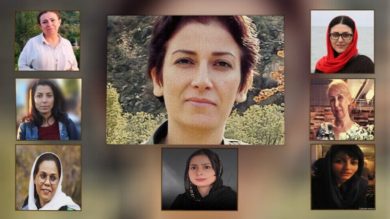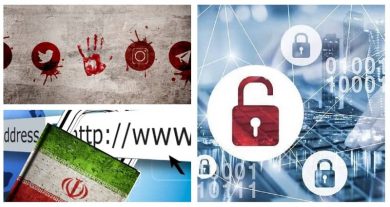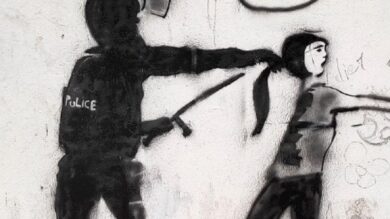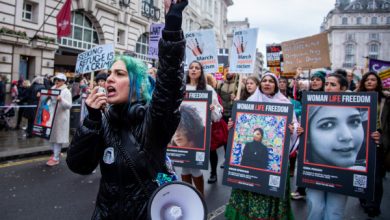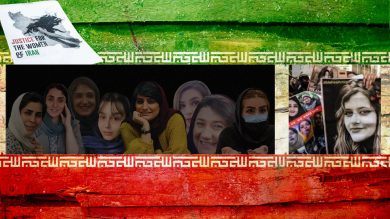The Islamic Revolutionary Guard Corps (IRGC) has been at the center of Iran’s military, political, and economic power since its formation after the 1979 Islamic Revolution. Over the years, the IRGC has evolved into a powerful entity, accused of engaging in terrorist activities, proxy wars, and human rights violations both inside Iran and across the Middle East. In response, several countries, including the United States, have designated the IRGC as a terrorist organization, a move aimed at restricting its activities and disrupting its global networks. This article explores the reasons for the designation, its implications, and why it is considered an essential tool for counterterrorism and human rights advocacy.
1. What is the IRGC?
The Islamic Revolutionary Guard Corps is a branch of Iran’s military established to protect the Islamic regime and enforce its ideological goals. Over time, the IRGC has expanded its influence in multiple areas:
A. Military Operations
• The IRGC oversees Iran’s conventional military and asymmetric warfare tactics, including cyber operations and intelligence activities.
• The Quds Force, the IRGC’s elite external arm, supports proxy militias and terrorist groups in countries like Syria, Iraq, Lebanon, and Yemen.
B. Economic Control
• The IRGC controls vast sectors of Iran’s economy, including oil, construction, telecommunications, and banking.
• Profits from these sectors allegedly fund terrorism and regional destabilization efforts.
C. Political Influence
• The IRGC plays a key role in domestic repression, using violence, surveillance, and media control to silence dissent.
• It is implicated in mass arrests, torture, and extrajudicial killings of activists, journalists, and minority groups.
2. Why Designate the IRGC as a Terrorist Organization?
A. Support for Terrorist Groups and Proxy Wars
The IRGC is accused of supporting terrorist organizations like Hezbollah in Lebanon, Hamas in Gaza, and Shia militias in Iraq and Syria. Through its Quds Force, the IRGC provides:
• Financial aid, estimated at hundreds of millions of dollars annually.
• Weapons and military training to groups that carry out terror attacks and armed conflict.
• Strategic support for proxy wars, destabilizing entire regions to advance Iran’s geopolitical goals.
B. Direct Terrorist Activities
• The U.S. Department of State cites multiple incidents in which the IRGC or its proxies carried out attacks on U.S. military personnel and diplomatic missions.
• The IRGC has allegedly plotted assassinations and espionage operations against Iranian dissidents living abroad.
C. Domestic Repression
Designating the IRGC highlights its role in systematic human rights abuses, including:
• Suppressing peaceful protests, such as the 2019 fuel price protests and the 2022 Mahsa Amini demonstrations.
• Enforcing gender-based oppression through morality policing and the persecution of women’s rights activists.
3. Countries and Organizations That Have Designated the IRGC
Several nations have taken steps to sanction or designate the IRGC as a terrorist organization. These include:
A. The United States
• In 2019, the U.S. became the first country to designate the IRGC as a Foreign Terrorist Organization (FTO).
• This designation subjects the IRGC to financial sanctions, asset freezes, and restrictions on travel.
B. Canada
• Canada has banned senior IRGC officials from entering the country and has imposed sanctions targeting the IRGC’s financial activities.
C. Other Countries and Proposals
• The United Kingdom and European Union have sanctioned individual IRGC officials and entities.
• Debates continue over whether the EU should implement a full terrorist designation for the IRGC.
4. Impact of the Terrorist Designation
A. Disruption of IRGC Funding and Operations
The terrorist designation limits the IRGC’s ability to:
• Access international financial systems.
• Use front companies to engage in global trade.
• Conduct arms smuggling and money laundering operations.
These measures can weaken the IRGC’s proxy network by cutting off funding for militant groups.
B. Diplomatic Leverage
Designating the IRGC strengthens diplomatic pressure on Iran by:
• Demonstrating a firm stance against terrorism.
• Encouraging multilateral cooperation to counter Iran’s regional activities.
• Enhancing negotiating power in talks related to Iran’s nuclear program and human rights obligations.
C. Symbolic and Moral Impact
The designation sends a message that the international community holds the IRGC accountable for terrorism and human rights abuses. It reinforces support for Iranian activists, who face persecution for opposing the regime.
5. Criticisms and Challenges of the Designation
A. Potential Escalation of Tensions
Critics argue that designating the IRGC may:
• Increase hostilities between Iran and its adversaries.
• Prompt retaliatory actions against foreign diplomats and businesses.
B. Impact on Diplomatic Negotiations
Some experts believe the designation complicates efforts to:
• Revive the Iran Nuclear Deal (JCPOA).
• Engage in constructive dialogue on regional security and economic cooperation.
C. Economic Impact on Civilians
While the designation targets the IRGC, economic sanctions can have collateral effects on ordinary Iranians, exacerbating poverty and limiting access to essential goods.
6. Global Solidarity and the Need for Coordinated Action
A. Strengthening International Coalitions
A coordinated approach involving sanctions enforcement, intelligence sharing, and counterterrorism operations can increase the designation’s effectiveness.
B. Supporting Iranian Civil Society
To mitigate the negative impact on civilians, governments should:
• Provide humanitarian aid and economic support to non-regime actors.
• Expand access to digital tools that enable activists to bypass censorship and organize safely.
7. Recommendations for Future Action
To enhance the impact of the IRGC’s designation as a terrorist organization, the international community should:
1. Expand Designations
Encourage more countries to formally designate the IRGC as a terrorist entity.
2. Increase Sanctions Enforcement
Disrupt illicit trade and financial networks used by the IRGC to fund terrorism.
3. Support Iranian Activists
Provide legal protection, digital security, and asylum opportunities for those targeted by the IRGC.
4. Promote Diplomatic Accountability
Push for UN investigations into crimes against humanity committed by the IRGC.
Conclusion
Designating the IRGC as a terrorist organization is a critical step in countering Iran’s support for terrorism, proxy wars, and domestic repression. While challenges remain, global solidarity and coordinated action can weaken the IRGC’s influence and empower those fighting for freedom and justice in Iran.
Join Our Newsletter!
Stay informed with the latest updates, news, and ways to take action in the fight for justice and global security. Sign up now to get updates delivered straight to your inbox!

